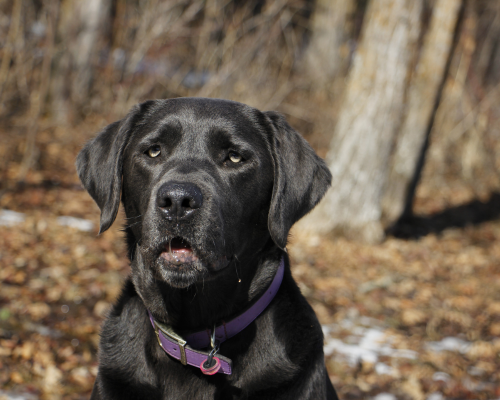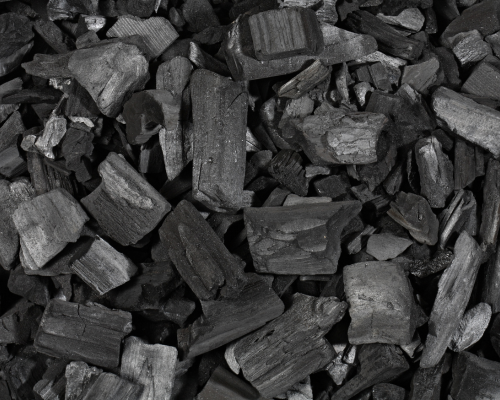Dog Ate Charcoal? Now What?
Dog Ate Charcoal? Now What?

Vet Reviewed

By: Sarah Hodgson
June 2, 2023
- Posted in Dogs
Table of Contents
You might be cooking up a barbeque and out of the blue a piece of charcoal that was set down on the floor gets scooped up by your dog. Out of curiosity, he takes a bite. Now What?
Your dog isn't the only one. Many dogs seem to want to take a bite of the black carbon residue known as charcoal. Why? What Will Happen?
We will answer all that in this article so stay tuned.
[object Object]
Dogs will eat just about anything they can fit in their mouths. Charcoal isn't a normal thing for dogs to eat, but their curiosity may lead them to consume it. Maybe the smell of fats of meat dripping down from the barbeque led them to. Or maybe it was simply their behavior.
Below are three reasons why dogs tend to eat charcoal. ( Your dog may have had a different reason these are simply common reasons )
- Pica behavior: Some dogs have a condition called pica, which involves consuming non-food items. This behavior can be triggered by various factors, such as boredom, anxiety, or nutritional deficiencies. Leading to them consuming charcoal.
- Attraction to smells: Charcoal, especially if it is used for barbecuing, can have a strong smell that may be appealing to dogs. They might be attracted to the smell and try to consume it out of curiosity or the desire for a different taste.
- Upset stomach: It is possible that dogs instinctively seek out charcoal as a way to alleviate digestive discomfort, although this behavior is not recommended.
Is Charcoal Toxic For Dogs?
To answer this simply.
Charcoal itself is not toxic to dogs, but that doesn't mean it's safe either. The type of charcoal, the amount consumed, and whether it's still hot can all contribute to the danger your dog faces from eating charcoal.
While charcoal might not be considered toxic, it can still cause plenty of problems inside your dog's body, especially if there are other contributing factors. Such as if it is still warm or if it's been in a place it shouldn't be.
While small amounts of charcoal ingestion may not be immediately toxic, it can still pose risks and potential complications for dogs.
Let's observe the different types of charcoal and the effects they have.
Charcoal with Fire Accelerants
Charcoal containing lighter fluid or other fire accelerants can be toxic unlike regular charcoal containing no fire accelerants. And potentially fatal if consumed due to the products used. Dogs that eat treated charcoal may end up with further issues such as the development of sores and irritation in the mouth.
Hot Charcoal
Hot charcoal can cause burns to a dog's mouth and tongue, which are extremely painful and can lead to secondary wound infection. Moreover, the burns can cause their tongue and throat to swell, leading to difficulty breathing. They should be rushed to the vet immediately if hot charcoal is consumed.
Potential Health Risks and Symptoms
The symptoms your dog can experience after eating charcoal can vary depending on the type and amount of charcoal ingested. In many cases, your dog will stop eating charcoal once they find it untasty. However, this isn't the case for all dogs.
Intestinal Blockages
Large pieces of charcoal may cause a blockage along your dog's intestinal tract or stomach. Blockages are serious and require veterinary attention.
Here are some signs indicating your dog may have a blockage:
- Vomiting
- Diarrhea
- Abdominal pain
- Inappetence
- Constipation
Toxic Materials
As mentioned earlier, many modern charcoals contain fire accelerants such as lighter fluid which could be toxic and even fatal for dogs. Depending on the toxin and amount consumed, the signs of toxicity can vary. However, if you notice any strange behaviors, brown gums, fast heart rate, weakness, increased breathing, or digestive upset, you should call your vet immediately.
Burns
Hot charcoal can cause burns to the gums, mouth, tongue, and esophagus, which is extremely painful for your dog. Moreover, your dog may be unable to eat normally, depending on the severity of the burns.
What to Do if Your Dog Eats Charcoal
If your dog consumes charcoal, it's best to seek vet advice. If he just did here are some steps to take that will help.
Prevent further consumption: Remove your dog from the area and clean up any spillages to prevent them from eating more charcoal.
Provide water: Give your dog some water to help wash their mouth, soothe burns, and support their kidneys.
Assess the situation: Determine how much charcoal your dog has eaten, whether it was natural or briquettes, and whether there were any additives present.
Call the vet: Contact your veterinarian or pet poison control hotline for advice on what to do next. Be prepared to provide information on your dog's breed, age, weight, and the type and amount of charcoal consumed.
Monitor your dog: Keep a close eye on your dog for 48 hours and look for signs of an upset stomach, blockage, or other distressing symptoms. If anything causes concern, consult your vet immediately.

Prevention Measures
To prevent your dog from ingesting charcoal, always keep the substance out of your dog's reach. If you cook with charcoal, watch your dog carefully, dispose of charcoal properly, and store it away from snooping pooches. Additionally, if you know your dog is a fan of charcoal, keep them away from the grill whenever you're using charcoal.
The Bottom Line
While charcoal is not toxic for dogs, ingesting it can lead to a range of health issues, including intestinal blockages, toxic materials, and burns. If your dog has consumed charcoal, it is important to contact your veterinarian and monitor your dog for any signs of distress. By taking preventative measures and being vigilant, you can ensure your dog's safety around charcoal.

Subscribe to Petfluence!
Get updates on the latest posts and more from Petfluence straight to your inbox.